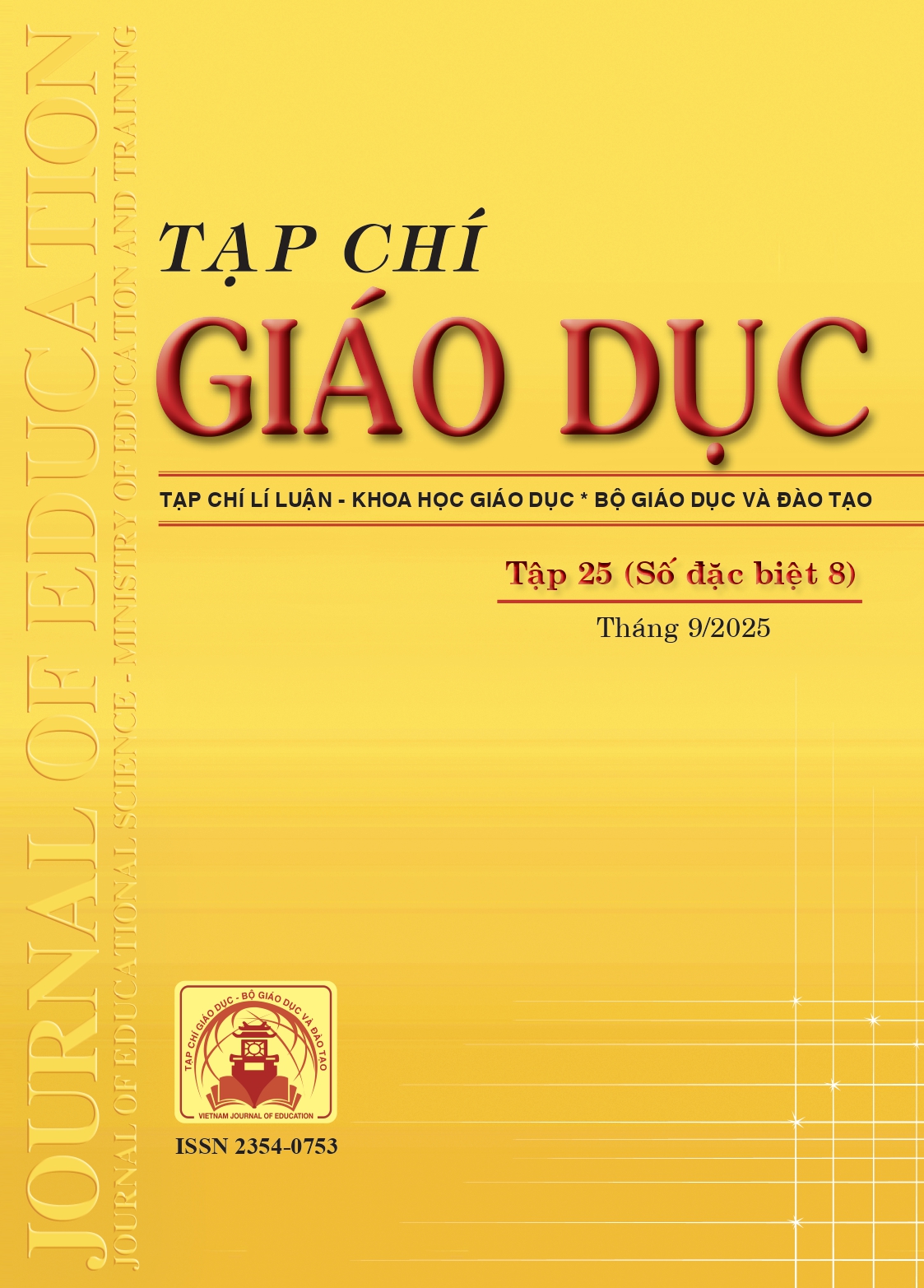Khả năng và quy trình ứng dụng trí tuệ nhân tạo (AI) trong dạy học môn Địa lí ở trung học phổ thông
Tóm tắt
In the context of the 4.0 industrial revolution and the development of artificial intelligence, the innovations of the 2018 general education program require drastic changes in teaching and learning. The study analyzes the possibility of applying artificial intelligence in all Geography teaching and learning activities by teachers and students. From there, a 6-step process is proposed to apply AI tools to improve the effectiveness of teaching Geography in the digital age. Some notes are also given to teachers and students to help them overcome the risks when applying artificial intelligence in teaching Geography. The application of AI in teaching Geography needs to be carried out in a planned, selective and verified manner with data sources; at the same time, it is necessary to harmoniously combine technology and traditional methods to maximize educational effectiveness.
Tài liệu tham khảo
Bộ GD-ĐT (2018). Chương trình giáo dục phổ thông môn Địa lí (ban hành kèm theo Thông tư số 32/2018/TTBGDĐT ngày 26/12/2018 của Bộ trưởng Bộ GD-ĐT).
Bùi Trọng Tài, Nguyễn Minh Tuấn (2024). Nghiên cứu ảnh hưởng của trí tuệ nhân tạo trong giáo dục tới hoạt động học tập của sinh viên. Tạp chí Giáo dục, 24(10), 6-11.
Chang, C. H., & Kidman, G. (2023). The rise of generative artificial intelligence (AI) language models - challenges and opportunities for geographical and environmental education. International Research in Geographical and Environmental Education, 32(2), 85-89. https://doi.org/10.1080/10382046.2023.2194036
Holmes, W., Maya, B., & Fadel, C. (2019). Artificial Intelligence in Education: Promises and Implications for Teaching and Learning. Center for Curriculum Redesign.
Khor, E. T., & Mutthulakshmi, K. (2024). A Systematic Review of the Role of Learning Analytics in Supporting Personalized Learning. Education Sciences, 14(1), 51. https://doi.org/10.3390/educsci14010051
Labadze, L., Grigolia, M., & Machaidze, L. (2023). Role of AI chatbots in education: systematic literature review. International Journal of Educational Technology in Higher Education, 20(1), 56. https://doi.org/10.1186/s41239-023-00426-1
Norvik, P., & Russell, S. (2021). Artificial Intelligence: A Modern Approach (4th Global ed.). Pearson Education Ltd.
Rawas, S. (2024). AI: the future of humanity. Discover Artificial Intelligence, 4(1), 25. https://doi.org/10.1007/s44163-024-00118-3
Son, T. (2024). Intelligent Tutoring Systems in Mathematics Education: A Systematic Literature Review Using the Substitution, Augmentation, Modification, Redefinition Model. Computers, 13(10), 270. https://doi.org/10.3390/computers13100270
Vashishth, T. K., Sharma, V., Sharma, K. K., Kumar, B., Panwar, R., & Chaudhary, S. (2024). AI-driven learning analytics for personalized feedback and assessment in higher education. In Using Traditional Design Methods to Enhance AI-Driven Decision Making (pp. 206-230). IGI Global Scientific Publishing. https://doi.org/10.4018/979-8-3693-0639-0.ch009
Wang, S., Wang, F., Zhu, Z., Wang, J., Tran, T., & Du, Z. (2024). Artificial intelligence in education: A systematic literature review. Expert Systems with Applications, 252, 124167. https://doi.org/10.1016/j.eswa.2024.124167
Wilby, R. L., & Esson, J. (2024). AI literacy in geographic education and research: Capabilities, caveats, and criticality. Geographical Journal, 190(1), e12548. https://doi.org/10.1111/geoj.12548
Zhang, J., & Zhang, Z. (2024). AI in teacher education: Unlocking new dimensions in teaching support, inclusive learning, and digital literacy. Journal of Computer Assisted Learning, 40(4), 1871-1885. https://doi.org/10.1111/jcal.12988
Đã Xuất bản
Cách trích dẫn
Số
Chuyên mục
Giấy phép

Tác phẩm này được cấp phép theo Ghi nhận tác giả của Creative Commons Giấy phép quốc tế 4.0 .












